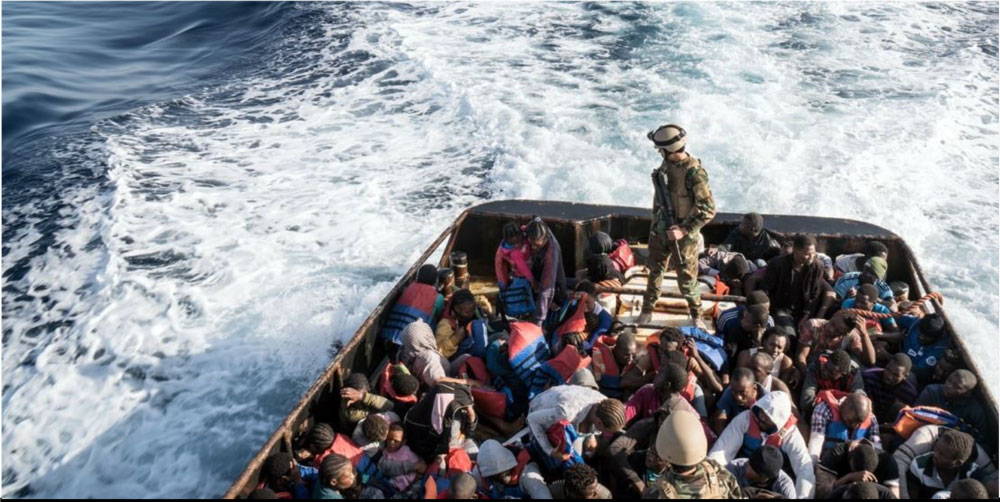The New Republic, August 2019
There are the borders that register quickly as borders—red, metal spikes jutting from dusty hills, glinting spirals of razor wire—and then there are borders that don’t. There are borders roiling in the Caribbean and Mediterranean, where naval and coast guard vessels intercept thousands of people fleeing danger in makeshift boats. There are the borders of refugee camps and detention centers where blocked migrants are sealed in geographic limbo, far from the destinations they hope to reach. Less dramatically, there is the quiet border at the airport, stretching between you and the airline clerk who needs to see your visa, a document that, if you’re seeking asylum, you probably do not have.
It is these less conventional borders—painfully obvious and consequential to migrants, but often invisible to citizens of the global north—that are the subject of David FitzGerald’s trenchant new book, Refuge Beyond Reach: How Rich Democracies Repel Asylum Seekers. The author, a political scientist and pioneer in the global study of immigration control, provides an indispensable map of what he calls, strikingly, an international “architecture of repulsion”: immigration policies that seek to push state borders out from national territory, and that profoundly compromise asylum-seekers’ pursuit of safety, both practically and as a matter of design. Sometimes these policies come bearing titles like the “Pacific Solution” and the “Haitian Program,” which tellingly echo earlier lethal uses of state power.
The phenomenon itself is not new to scholars. Political scientist Aristide Zolberg identified these policies decades ago—calling them “remote control” systems—while other analysts refer to an “externalization” of borders. One might refer to them as offshore borders. Whatever they are called, such policies represent the tangle of state power that migrants of all kinds, including asylum-seekers, must navigate; while the numbers are by definition difficult to fix, researchers have suggested that far more migration is prevented globally by these offshore mechanisms than by border controls as conventionally understood.
